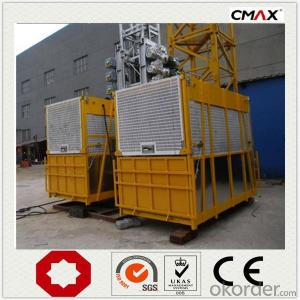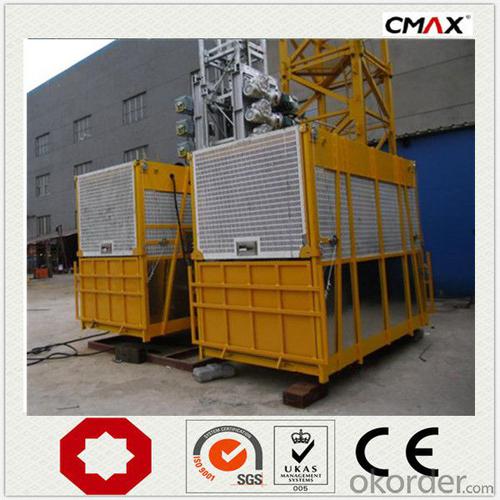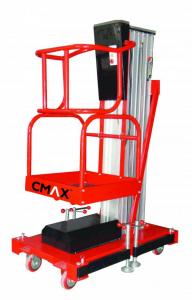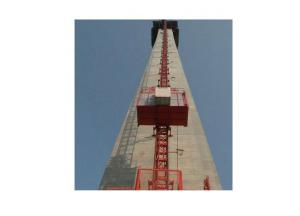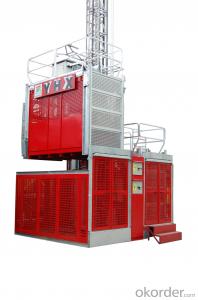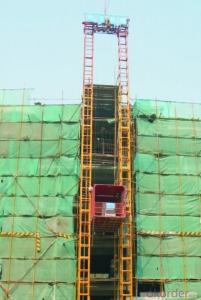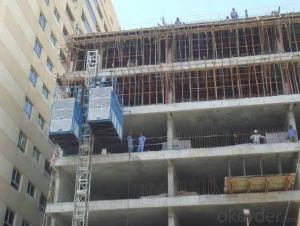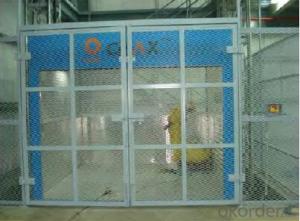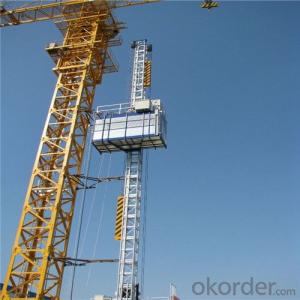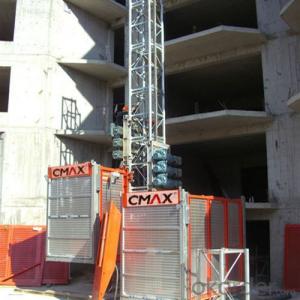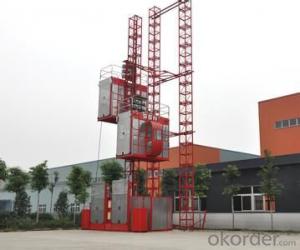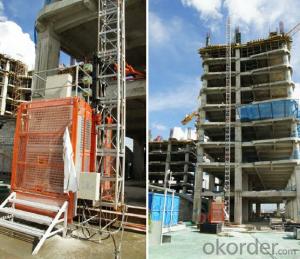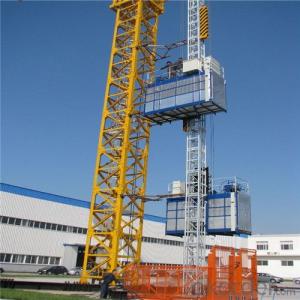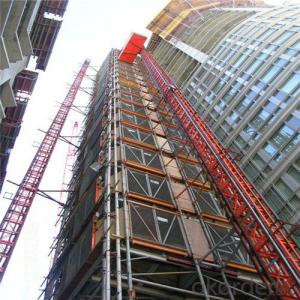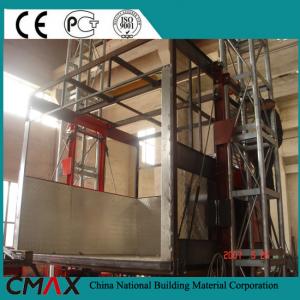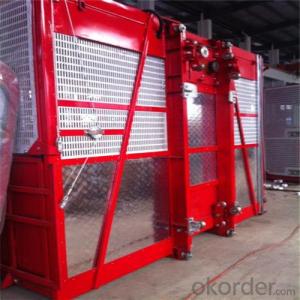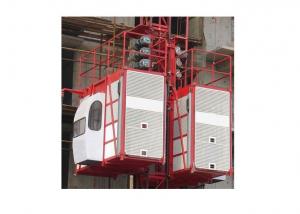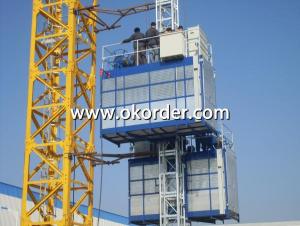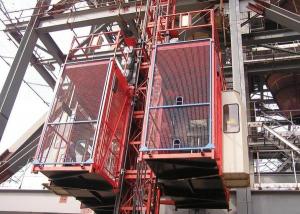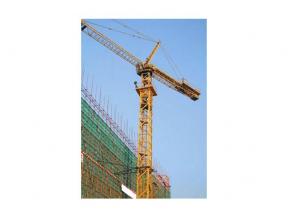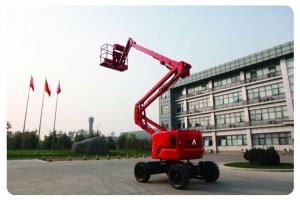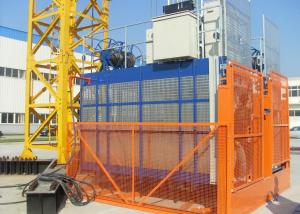Building Hoist SCD270 Single Cage Brake Disc
- Loading Port:
- China main port
- Payment Terms:
- TT OR LC
- Min Order Qty:
- 1 unit
- Supply Capability:
- 30 unit/month
OKorder Service Pledge
OKorder Financial Service
You Might Also Like
Specification
Building Hoist Description
Condition: New
Application: Construction
Payload(kg):2700
Lifting Speed(m/min):0~60
Motor Power(kw): 2*18.5
Safety Device: SAJ50-1.4
Cage: Single
Counterweight: Yes
Certification: CE,ISO
Place of Origin: China(Mainland)
Model Number: Type:SCD270
Packaging & Delivery of Building Hoist
Packaging Detail: Nude package
Delivery Detail: 25-30days
Features of Building Hoist
●Due to the strict raw material procurement control system, our drive motors for construction hoist/ building lift /material elevator for bridge/ tower / chimney / building is guaranteed with safe and reliable performance.
●The steel, electrical components, hoist cables, high strength bolts and spare parts are all introduced from well-known international and domestic suppliers.
●Adopts the most advanced VF speed control device and microcomputer programmable logic controller.
● Stepless speed control helps eliminate the concussion during start up and braking, steady the operation process,
and ensures automated leveling.
● Adopts open loop V/Fcontrol; the speed control precision can reach ±2~3%. Realizes accurate low speed positioning of the hoist and avoid slipping during downward stopping of hoist.
● The VF system has current-restriction function, ensuring a small current when motor start up and reducing the concussion to power supply. It reduces the engery consumption and mitigates effects to on site electric equipments.
Building Hoist Images
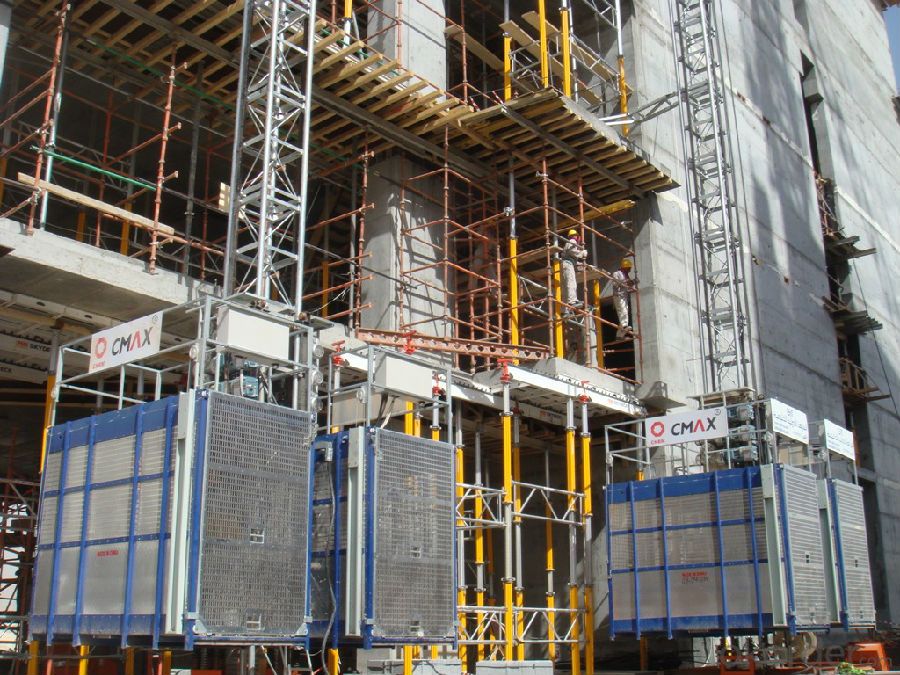
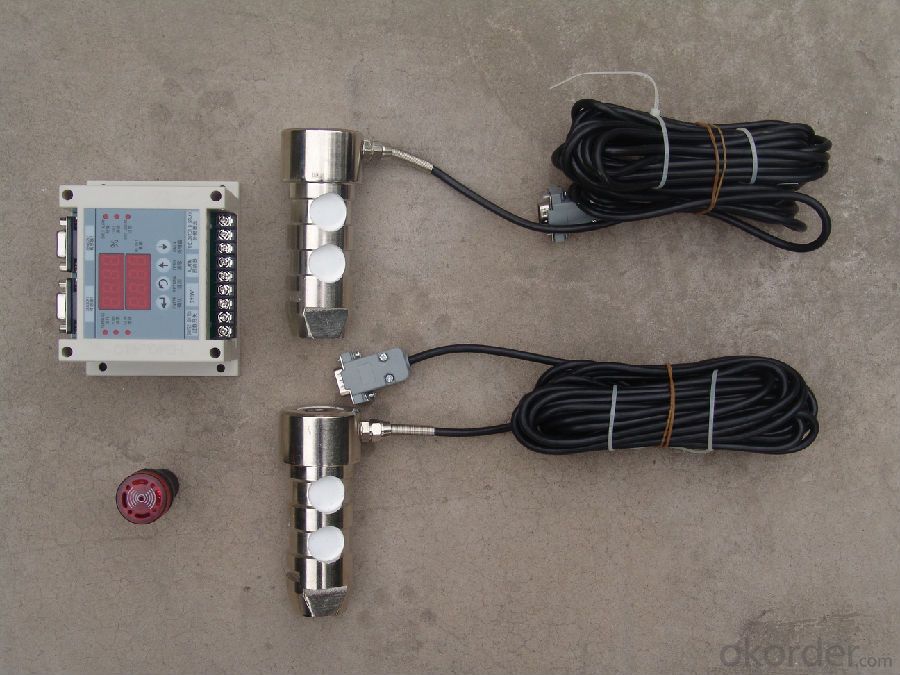
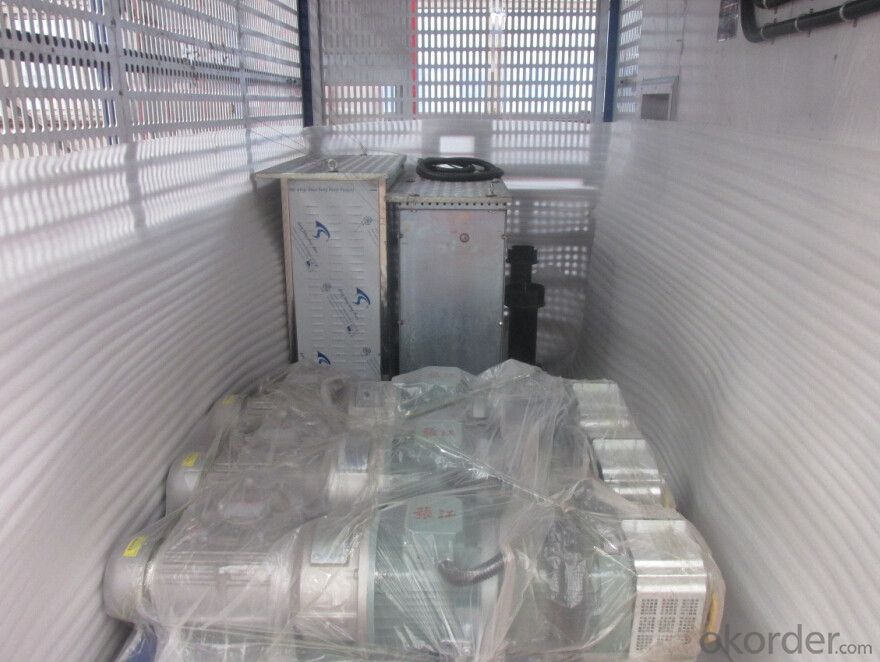
Building Hoist Specifiction
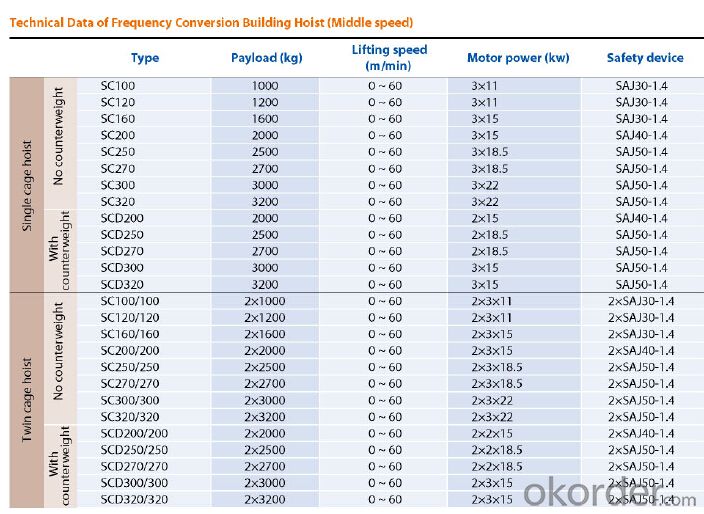
FAQ of Building Hoist
Q: What is the building hoist main purpose?
A: Building hoist equipped with double or single cabin to transport the materials and labors up and down. It's the ideal
construction equipment for vertical transportation in the field of construction.
Q: What is the main structure of building hoist?
A: The P/M construction hoist mainly contains metal structure, driving system, electrical control system, cable guide &
protection system, electrical top crane and safety device.
Q: What is the meaning of the building hoist’s code?
A: Take SC200/200 for example: “SC” stands for rack and pinion hoist, “200/200” stands for double cage and capacity
is 2 tons per cage. “SC200” stands for single cage and capacity is 2 tons.
- Q: This question asks for the steps or procedures to keep a building hoist in good working condition.
- <p>Maintaining a building hoist involves regular inspections, lubrication, and repairs. Ensure all safety features are operational and that the hoist is clean and free of debris. Check cables for wear and replace them if necessary. Lubricate moving parts as per the manufacturer's recommendations. Inspect the electrical system for any signs of damage or wear. Regularly test the hoist's load capacity and emergency stop functions. Keep a maintenance log to track all inspections and repairs. If any issues are identified, address them promptly to prevent accidents and ensure the hoist operates safely and efficiently.</p>
- Q: Is it possible to use a building hoist to lift objects that are too large to pass through a standard doorway?
- <p>Yes, a building hoist can be used for lifting objects that are too large to fit through a doorway. Building hoists are designed to handle heavy and oversized items, lifting them vertically through small openings or directly from the ground to higher floors. They are particularly useful in construction projects where large materials or equipment need to be moved to upper levels of a building. However, it's important to ensure the hoist is properly installed and operated by trained personnel to maintain safety and avoid damage to the building or the items being lifted.</p>
- Q: This question asks about the different types of hydraulic cylinders that are utilized in lifting equipment.
- <p>Hydraulic cylinders used in lifting equipment can be categorized into several types based on their design and application. The main types include: single-acting cylinders, which have one port for fluid and rely on the load or a spring to return; double-acting cylinders, which have ports on both ends and can extend and retract through fluid pressure; telescopic cylinders, which consist of multiple stages that can extend sequentially for greater reach; and rotary hydraulic cylinders, which provide a combination of linear and rotary motion. Each type is chosen based on the specific requirements of the lifting task, such as the need for speed, force, and control.</p>
- Q: Safety device for construction elevator
- When the cage is in an emergency for various reasons during the operation, the driver can press the stop switch at any time, making the cage stop running. The fast stop must be a non-self-restoring safety device, usually installed in the top of the cageConstruction lifter lifting door, protective enclosure door are equipped with electric interlock switch, which can effectively prevent because of hoisting cage or protective enclosure door open it up and running and materials caused by falling, only when the hoisting cage door and protective enclosure fully closed to start running.
- Q: How large a leakage protector is used for the construction elevator
- The leakage current is less than 30 milliamps The short circuit current is typically 1.2 to 1.5 times the rated current If the motor is rated at 10, it is usually used with a 125-15 leakage protector
- Q: Is it possible to replace a lifting rope in a construction hoist with a regular rope?
- <p>No, a regular rope should not be used as a substitute for a lifting rope in a building hoist. Lifting ropes are specifically designed for heavy-duty lifting and have safety standards to ensure they can withstand the weight and stress. Regular ropes lack these safety features and can break under heavy loads, leading to accidents. Always use the appropriate lifting equipment as specified by safety regulations and the manufacturer's guidelines.</p>
- Q: What types of materials can be transported using a building hoist?
- <p>A building hoist can lift a variety of materials, including construction supplies such as bricks, cement, sand, and gravel. It can also transport larger items like steel beams, prefabricated concrete elements, and heavy machinery. Additionally, it is used to move tools, equipment, and sometimes personnel within the construction site. The specific materials that can be lifted depend on the hoist's capacity and the safety regulations in place. It's crucial to ensure that the load does not exceed the hoist's weight limit to maintain safety standards.</p>
- Q: This question asks whether a building hoist can be utilized for lifting both fragile and non-fragile items.
- <p>Yes, a building hoist can be used for lifting both fragile and non-fragile objects. However, it is crucial to ensure that the hoist is equipped with the appropriate attachments and safety measures to handle fragile items without causing damage. For non-fragile objects, the hoist can be used more freely, but still, safety protocols must be followed to prevent accidents. The key is to use the hoist within its weight capacity and to adhere to all operational guidelines to ensure the safe and effective lifting of all types of objects.</p>
- Q: Should a fire extinguisher be equipped in the construction elevator?
- The temporary building area shall be equipped with fire equipment according to the regulations. In general temporary facilities, each 100m2 is equipped with two 10L extinguisher. If the total area of a large temporary facility exceeds 1200m2, there shall be a special service for fire fighting, such as taiping pail, water bucket (pool), and huangsha ponds, etc. No items shall be piled up around the facilities. Between temporary carpenter's room, paint room, wood and machine tools, each 25m2 should be equipped with a suitable extinguisher. The oil depot and dangerous goods warehouse shall be equipped with sufficient quantity and type suitable extinguisher.
- Q: This question asks about the typical issues encountered with construction hoists and seeks solutions to address these problems.
- <p>Common problems with building hoists include mechanical failures, electrical issues, safety hazards, and improper maintenance. Mechanical failures can be fixed by regular inspection and timely replacement of worn-out parts. Electrical issues are often resolved by checking wiring and connections, and using surge protectors. Safety hazards can be mitigated by ensuring all safety features are operational and by providing proper training to operators. Improper maintenance can be addressed by establishing a routine maintenance schedule and ensuring that all personnel follow safety protocols. Regular inspections, prompt repairs, and operator training are key to maintaining the functionality and safety of building hoists.</p>
Send your message to us
Building Hoist SCD270 Single Cage Brake Disc
- Loading Port:
- China main port
- Payment Terms:
- TT OR LC
- Min Order Qty:
- 1 unit
- Supply Capability:
- 30 unit/month
OKorder Service Pledge
OKorder Financial Service
Similar products
Hot products
Hot Searches
Related keywords
